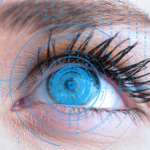Erectile dysfunction- Dismantling the myths, embracing the solutions
Erectile dysfunction (ED) is a complex medical condition in men of all ages, and it is more prevalent as men grow older. Despite its widespread occurrence, many misconceptions persist, often preventing them from seeking. One pervasive myth is that ED is an inevitable part of ageing. While age is a risk factor, many older men maintain healthy erectile function well into their later years. Conversely, younger men experience ED due to various factors such as stress, anxiety, or underlying health conditions. Another misconception is that ED is always psychological. While mental health plays a crucial role, physical causes like cardiovascular issues, diabetes, or hormonal imbalances are often at the root of the problem.
Impact of lifestyle choices
Lifestyle factors significantly influence erectile function. Smoking, excessive alcohol consumption and a sedentary lifestyle all contribute to ED. On the flip side, adopting healthier habits often improves erectile function. Regular exercise, a balanced diet rich in fruits and management techniques all play a role in maintaining sexual health.
Medical advancements in ED treatment
- The landscape of ED treatment has evolved dramatically in recent years. While oral medications like sildenafil and tadalafil remain popular first-line treatments, new options are emerging. Low-intensity shock wave therapy, for instance, shows promise in blood flow to the penis. Platelet-rich plasma (PRP) therapy is another innovative approach being explored to regenerate tissue and enhance erectile function.
- These clinics often offer an approach that addresses ED’s physical and psychological aspects. At an ED Clinic Goodyear, patients expect thorough evaluations and tailored treatment strategies, which include a combination of medication, lifestyle modifications, and advanced therapies.
- Hormonal imbalances and deficient testosterone levels contribute to ED. While not all cases of ED are related to testosterone deficiency, hormone replacement therapy may be beneficial for some men. However, due to potential risks and side effects, this treatment should only be considered after thorough evaluation and under close medical supervision.

Cardiovascular health
ED often is an early warning sign of cardiovascular disease. The blood vessels in the penis are smaller than those in the heart, so problems with blood flow may manifest in erectile function before more severe cardiovascular issues arise. This connection is the importance of regular check-ups and a heart-healthy lifestyle for overall well-being and sexual health.
Navigating treatment options
Men must work closely with healthcare professionals to find appropriate solutions to the available treatments. What works for one individual may not be suitable for another, and a combination of approaches is often most effective. Open communication with healthcare partners is crucial in navigating the treatment successfully.
Breaking the silence: power of conversation
One of the most significant barriers to addressing ED is the reluctance many men feel to discuss the issue. Encouraging open dialogue about sexual health helps break down stigma and encourage more men to seek help. Healthcare is crucial in creating a comfortable environment for these conversations; patients feel heard and supported.
Research into ED continues to advance, with promising developments on the horizon. Gene therapy and regenerative medicine will offer more targeted and effective treatments in the future. As the complex interplay between physical, mental, and emotional factors in sexual health grows, so too does our ability to care for those affected by ED.












